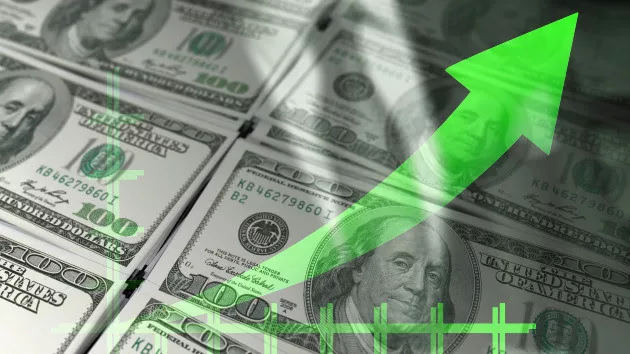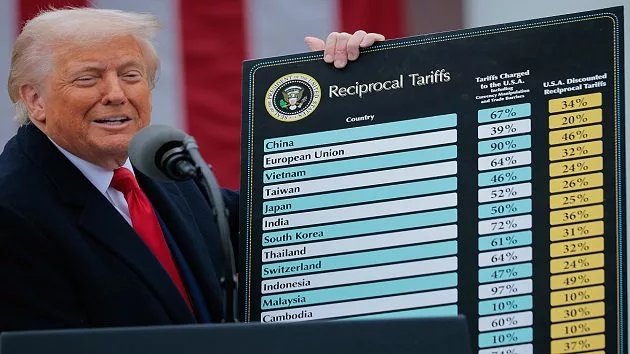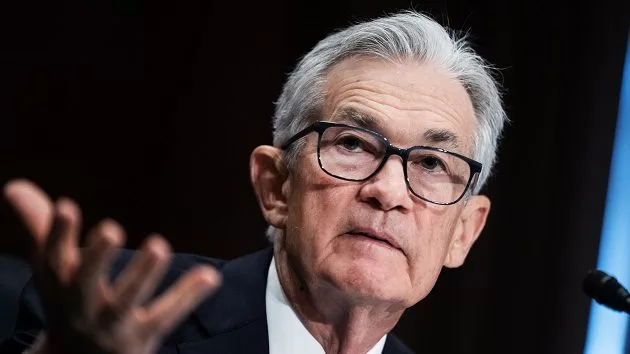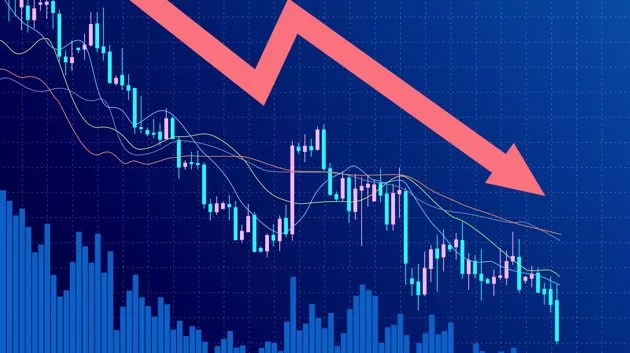
(NEW YORK) — The U.S. economy is expected to have grown at a blistering pace over the three months ending in September, fueling optimism about the nation’s outlook but complicating the fight to dial back inflation.
Fresh GDP data to be released on Thursday is expected to reinforce other recent indicators of a strong economy resisting the Federal Reserve’s effort to cool prices increases with a slowdown.
A blockbuster jobs report earlier this month exceeded economist expectations by nearly twofold. Consumer spending, which accounts for nearly three-quarters of U.S. economic activity, surged in September, according to data released last week.
Economists expect GDP to have grown at 4.3% annualized rate over the three-month period ending in September — a rate nearly twice as fast as the previous quarter.
U.S. GDP grew at a 2.4% annualized rate over three months ending in June, which marked an advance from the rate recorded over the previous quarter.
Such robust indicators could nudge the Fed to hike rates at its meeting next week, as it tries to combat persistently high inflation.
Speaking at a luncheon in New York City last week, Fed Chair Jerome Powell noted the unexpectedly strong economic performance in recent months.
“We are attentive to recent data showing the resilience of economic growth and demand for labor,” Powell said, adding that such growth could “put further progress on inflation at risk.”
Inflation stands well below its peak last year of over 9%, but progress has stalled in recent months and price growth remains more than a percentage point higher than the central bank’s target rate.
Recent economic growth, however, belies an alarm sounded by one of the most important economic indicators: the 10-year treasury yield.
A rapid rise in U.S. government bond yields over recent weeks has elevated borrowing costs for consumers seeking mortgage loans and corporations pursuing funds to expand their business.
The jump in borrowing expenses threatens to slow economic activity in the coming months. Economists expect GDP growth to slow later this year.
The onset of some financial pain is exemplified by the housing market, where the average interest rate for a 30-year fixed mortgage reached 8% last week, Mortgage News Daily data shows.
High mortgage rates have dramatically slowed the housing market, since homebuyers have balked at the stiff borrowing costs, and home sellers have opted to stay put with mortgages that lock them into comparatively low rates.
Mortgage applications have fallen to their lowest level since 1996, the Mortgage Brokers Association said earlier this month.
Major housing industry groups voiced “profound concern” about rising mortgage rates in a letter last week that urged the Federal Reserve to stop hiking its benchmark interest rate.
Business leaders and policymakers will closely watch when the Fed announces its latest rate-hike decision on Nov. 1.
The central bank expects to raise rates one more time this year, according to projections included alongside a statement last month from the Federal Open Market Committee, or FOMC, the Fed’s decision-making body on interest rates.
The benchmark interest rate currently stands at a range 5.25% to 5.5%, as a result of a near-historic series of rate increases, also known as credit tightening,
“Given the fast pace of the tightening, there may still be meaningful tightening in the pipeline,” Powell said last week.
Copyright © 2023, ABC Audio. All rights reserved.








